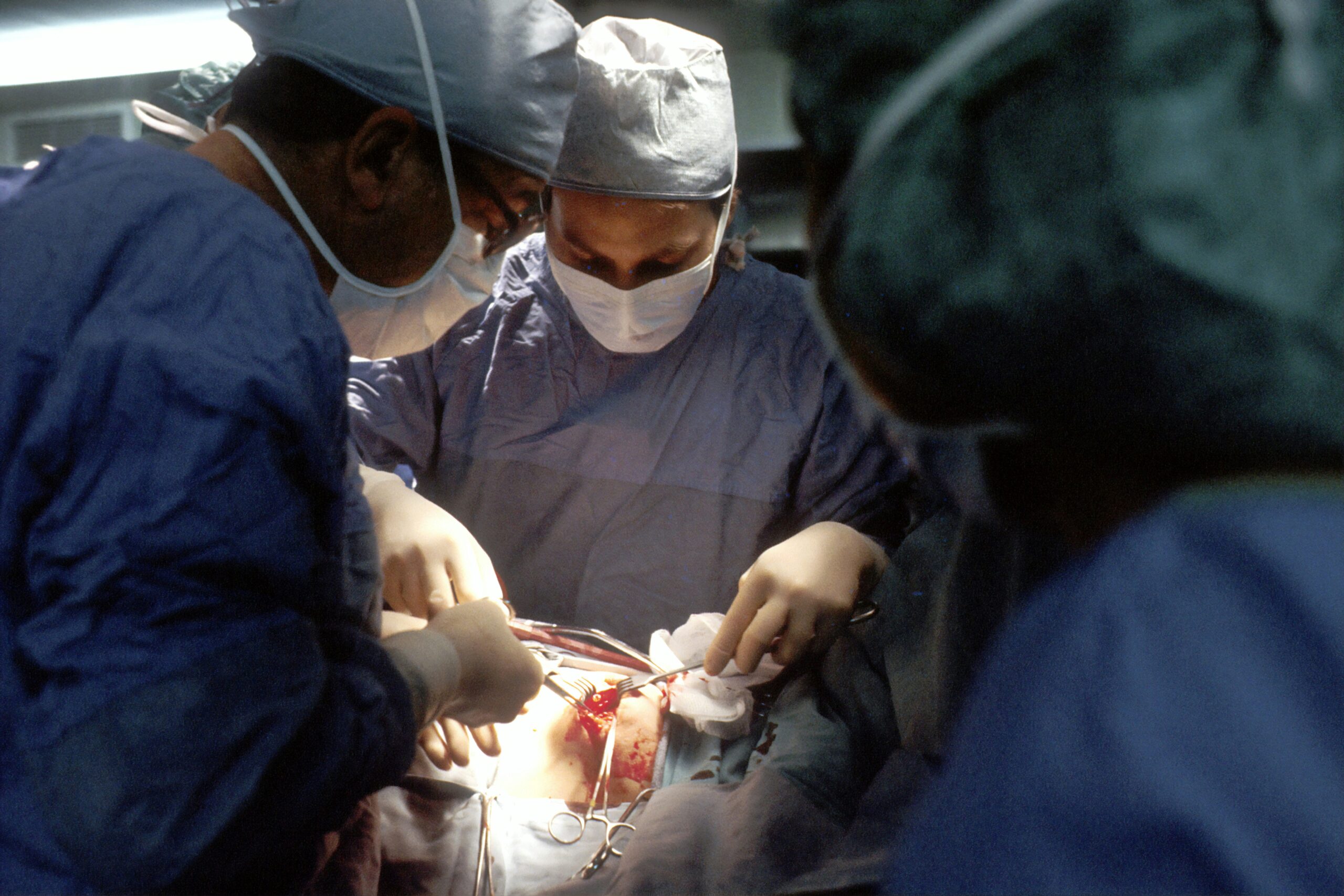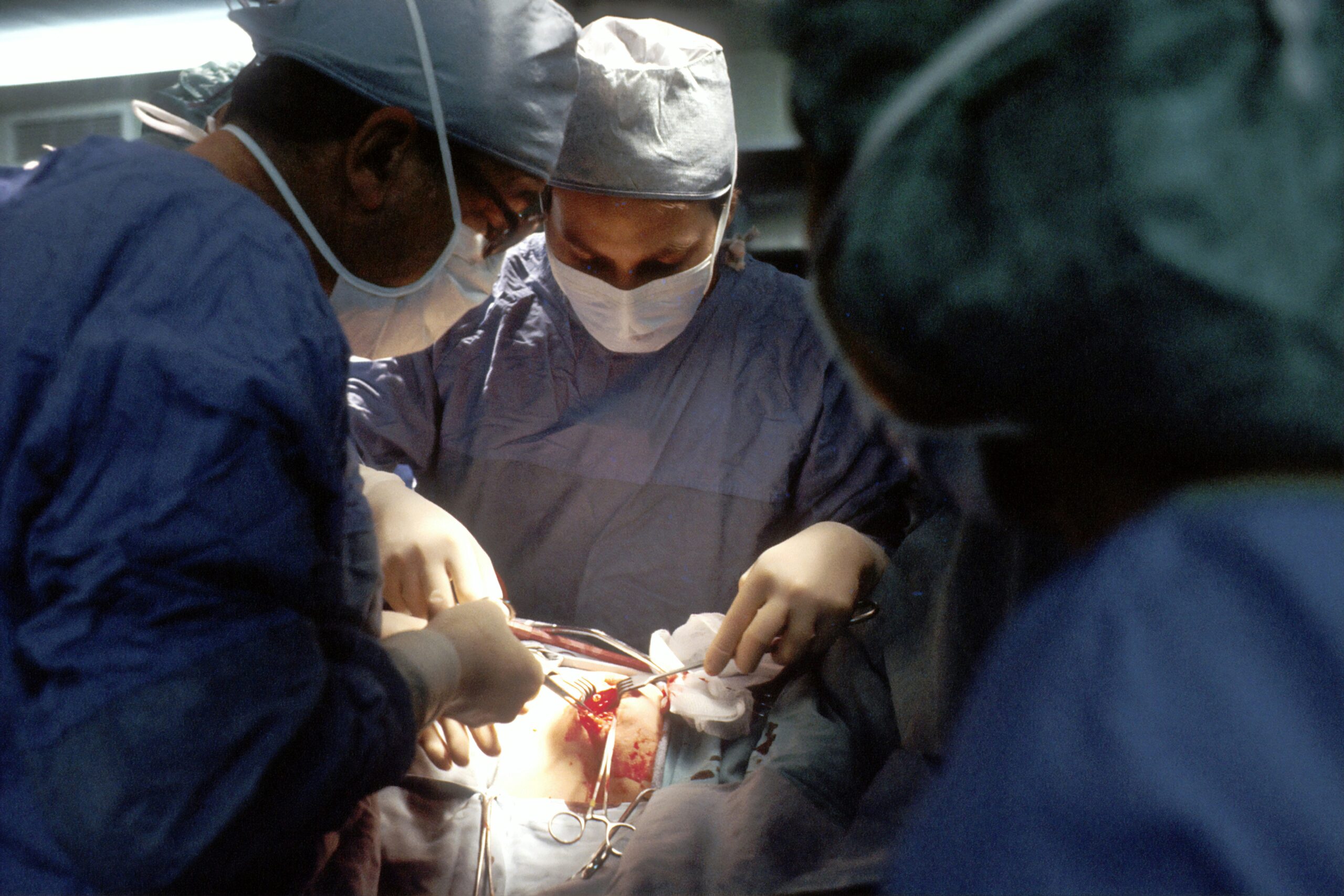Imagine this: you've been experiencing some discomfort down there, specifically in your prostate area. But what if I told you that this seemingly isolated issue could potentially lead to more serious problems with your kidneys? Yes, that's right! In this article, we will explore the link between prostate problems and kidney problems, shedding light on how these two vital organs can impact each other’s health. So sit back, relax, and let's delve into this fascinating topic together.
Understanding the Prostate and its Functions
Anatomy of the Prostate
The prostate is a small gland located just below the bladder and in front of the rectum in men. It is approximately the size of a walnut and surrounds the urethra, which is the tube that carries urine and semen out of the body. The prostate is made up of several lobes and is divided into zones, including the peripheral zone, central zone, and transitional zone. Understanding the anatomy of the prostate is important in comprehending its functions and how it can potentially affect the kidneys.
Role of the Prostate in Reproduction
The prostate plays a crucial role in the male reproductive system. It produces a fluid that is a vital component of semen, which nourishes and protects sperm. During ejaculation, the smooth muscles of the prostate contract, propelling the seminal fluid into the urethra and ultimately out of the body. This process allows for the successful transport of sperm for fertilization. The prostate's role in reproduction highlights its significance in men's overall reproductive health.
The Prostate and Urination
Aside from its reproductive function, the prostate also has an impact on urination. As the prostate surrounds the urethra, any enlargement or inflammation can lead to urinary symptoms. When the prostate gland becomes enlarged, it may exert pressure on the urethra, contributing to urinary difficulties. These difficulties may include weak urinary flow, increased frequency of urination, and a sensation of incomplete emptying of the bladder. Understanding the relationship between the prostate and urinary function is crucial in identifying potential prostate problems.
Prostate Problems: An Overview
Common Prostate Issues
Various prostate problems can arise, ranging from benign conditions such as benign prostatic hyperplasia (BPH) to more serious conditions such as prostate cancer. BPH is the most common prostate problem among aging men and involves the noncancerous enlargement of the prostate gland. Other common prostate issues include prostatitis, which is the inflammation of the prostate gland, and prostate cancer, which is the abnormal growth of cells in the prostate. Understanding these common prostate issues is essential for recognizing and addressing any problems that may arise.
Causes and Risk Factors of Prostate Problems
The causes of prostate problems can differ depending on the specific condition. BPH, for example, is thought to result from hormonal changes associated with aging. Prostatitis can be caused by bacterial infections or other factors. Prostate cancer, on the other hand, has complex causes that are not yet fully understood but are believed to involve a combination of genetic, hormonal, and environmental factors. Certain risk factors, such as age, family history, and race, can increase the likelihood of developing prostate problems. Understanding these causes and risk factors can aid in the prevention and early detection of prostate disorders.
Symptoms of Prostate Problems
The symptoms of prostate problems can vary depending on the specific issue. Common symptoms of BPH include frequent urination, difficulty starting and stopping the urine stream, weak urine flow, and a feeling of incomplete bladder emptying. Prostatitis can cause symptoms such as pain or discomfort in the genital area, frequent urination, and flu-like symptoms. Prostate cancer may initially present with no symptoms, but as the disease progresses, symptoms may include urinary difficulties, blood in the urine or semen, erectile dysfunction, and bone pain. Recognizing these symptoms is important in seeking appropriate medical attention and treatment.
Diagnosing Prostate Disorders
Diagnosing prostate disorders often involves a combination of medical history evaluation, physical examination, and diagnostic tests. Medical practitioners may inquire about symptoms, perform a digital rectal exam to assess the size and texture of the prostate, and order laboratory tests, such as a prostate-specific antigen (PSA) blood test, to screen for prostate abnormalities. Additional tests, such as imaging scans or a prostate biopsy, may be recommended to confirm a diagnosis. Understanding the diagnostic process is crucial in ensuring accurate identification and appropriate management of prostate disorders.

Kidney: Anatomy and Functions
Structure of the Kidneys
The kidneys are two bean-shaped organs located in the upper abdominal cavity, one on each side of the spine. They serve as a vital part of the urinary system, primarily responsible for filtering waste products and excess fluid from the blood to produce urine. Each kidney consists of an outer cortex and an inner medulla, which contain numerous nephrons, the functional units responsible for filtration. Understanding the structure of the kidneys provides insight into their intricate functions.
Importance of Kidneys in Excretion
The kidneys play a crucial role in excretion by filtering waste products, toxins, and excess substances from the bloodstream. Through the process of filtration, reabsorption, and secretion, the kidneys maintain a delicate balance of electrolytes, water, and other solutes in the body. This balance is necessary for overall bodily functions and the regulation of blood pressure, red blood cell production, and bone health. Recognizing the importance of the kidneys in excretion underscores their significance in maintaining overall health and well-being.
How Kidneys Maintain the Body's Fluid and Electrolyte Balance
The kidneys play a fundamental role in maintaining the body's fluid and electrolyte balance. By adjusting the excretion or reabsorption of electrolytes such as sodium, potassium, and calcium, the kidneys regulate the concentration and composition of bodily fluids. Additionally, the kidneys control fluid volume through the regulation of water reabsorption. This intricate balancing act ensures the stability of bodily functions and prevents electrolyte imbalances and dehydration. Understanding how the kidneys function to maintain fluid and electrolyte balance is crucial in appreciating their role in overall health.
Understanding Kidney Problems
Causes of Kidney Disorders
Kidney disorders can arise from various factors, including underlying medical conditions, genetic predisposition, lifestyle choices, and environmental factors. Common causes of kidney disorders include high blood pressure, diabetes, kidney infections, kidney stones, autoimmune diseases, and certain medications. Understanding the causes of kidney disorders can aid in their prevention and identification, as early intervention is often crucial in managing these conditions effectively.
Common Kidney Problems
Several common kidney problems can occur, including chronic kidney disease (CKD), kidney stones, urinary tract infections, kidney infections, and polycystic kidney disease (PKD). CKD is a progressive condition characterized by a gradual loss of kidney function over time. Kidney stones are hard mineral and salt deposits that can form in the kidneys, causing severe pain and discomfort. Urinary tract infections and kidney infections can result from bacterial infections and often require prompt medical attention. PKD is an inherited condition characterized by the formation of fluid-filled cysts in the kidneys. Understanding these common kidney problems is crucial in their management and prevention.
Signs and Symptoms of Kidney Disease
Kidney disease can manifest with various signs and symptoms, which may include fatigue, difficulty concentrating, changes in urine output or consistency, swelling in the hands and feet, hypertension, anemia, and electrolyte imbalances. These symptoms may be nonspecific and can vary depending on the underlying cause and stage of kidney disease. Recognizing the signs and symptoms of kidney disease is essential in promoting early detection and treatment, ultimately improving outcomes and quality of life.
Diagnosing Kidney Conditions
Diagnosing kidney conditions often involves a combination of medical history assessment, physical examination, and diagnostic tests. Medical practitioners may inquire about symptoms, perform blood and urine tests to assess kidney function and identify any abnormalities, and recommend imaging studies, such as ultrasound or CT scans, to visualize the kidneys and detect any structural abnormalities. In some cases, a kidney biopsy may be necessary to provide a definitive diagnosis. Understanding the diagnostic process is crucial in accurately identifying and managing kidney conditions.

How Prostate Problems Affect the Kidneys
Mechanism of Urine Flow Disruption by an Enlarged Prostate
An enlarged prostate, often associated with conditions such as BPH, can disrupt urine flow and potentially affect the kidneys. As the prostate gland enlarges, it can compress the urethra, leading to urinary retention, incomplete bladder emptying, and urinary stasis. This can cause urine to back up into the kidneys, leading to potential complications. Understanding the mechanism of urine flow disruption by an enlarged prostate highlights the importance of addressing prostate problems to prevent kidney issues.
Potential Kidney Complications
Prostate problems that impact urine flow can increase the risk of kidney complications. Urinary retention, a common consequence of an enlarged prostate, can result in a condition called hydronephrosis, characterized by the swelling of the kidneys due to urine backup. If left untreated, hydronephrosis can cause kidney damage and impair kidney function. Additionally, repeated urinary tract infections resulting from stagnant urine can lead to kidney infections, which can have severe consequences if not properly managed. Recognizing these potential kidney complications emphasizes the need for timely intervention in prostate problems.
Signs a Prostate Problem is Affecting your Kidneys
It is crucial to be aware of signs that indicate a prostate problem is affecting your kidneys. Symptoms may include pain or discomfort in the lower back or abdomen, frequent urinary tract infections, changes in urine color or consistency, and changes in urine output. If you experience any of these symptoms, it is essential to seek medical attention promptly. Medical professionals can conduct further evaluations and diagnostic tests to determine the underlying cause and provide appropriate treatment to minimize kidney damage.
Medical Studies Linking Prostate and Kidney Problems
Overview of Relevant Studies
Numerous studies have explored the link between prostate problems and kidney problems. These studies have examined the association between BPH and kidney dysfunction, the impact of prostate cancer treatment on kidney function, and the potential shared risk factors between prostate and kidney disorders. Understanding the key findings from these studies is essential in comprehending the complex relationship between the prostate and kidneys.
Results and Conclusions Drawn
According to the studies conducted, there is evidence to suggest a correlation between BPH and kidney dysfunction. The presence of BPH has been associated with an increased risk of kidney stone formation and impaired kidney function. The impact of prostate cancer treatment on kidney function varies depending on the treatment modality used, with certain treatments, such as surgery and radiation therapy, potentially affecting kidney health. Furthermore, shared risk factors, such as age and lifestyle factors, have been identified between prostate and kidney problems. These findings highlight the importance of considering both the prostate and kidneys in clinical practice.
Implications of Research Findings
The research findings linking prostate and kidney problems have significant implications for medical practice. Understanding the connection between BPH and kidney dysfunction can aid in the early detection and prevention of kidney complications in individuals with an enlarged prostate. Recognizing the potential impact of prostate cancer treatment on kidney function allows healthcare professionals to implement appropriate monitoring and management strategies to minimize adverse effects. Furthermore, identifying shared risk factors can contribute to a more comprehensive approach to preventive care for both prostate and kidney disorders.

The Impact of Prostate Cancer on Kidney Health
How Prostate Cancer Can Lead to Kidney Problems
Prostate cancer, if left untreated or if it spreads to the kidneys, can potentially lead to kidney problems. As cancerous cells grow and multiply in the prostate gland, they can invade nearby tissues and organs, including the kidneys. This invasion can disrupt normal kidney functioning and potentially impair kidney health. Additionally, certain treatments for prostate cancer, such as radiation therapy or chemotherapy, can have adverse effects on the kidneys. Addressing prostate cancer and its impact on kidney health is crucial in preserving overall kidney function.
Preventing Kidney Issues in Prostate Cancer Patients
Preventing kidney issues in prostate cancer patients requires a comprehensive approach. It involves early detection and treatment of prostate cancer to prevent its spread to the kidneys, as well as close monitoring of kidney function throughout the course of treatment. Implementing strategies to minimize treatment-related kidney toxicity and promoting overall kidney health, such as proper hydration and medication adjustments, can also help prevent kidney issues in prostate cancer patients. Collaborative efforts between urologists and nephrologists are essential in providing comprehensive care and optimizing outcomes.
Treatment Options Under Consideration
When prostate cancer affects kidney health, treatment options may vary depending on the extent and severity of the disease. Options may include surgical removal of the prostate gland, radiation therapy, chemotherapy, or targeted therapies. The choice of treatment modality depends on several factors, such as the stage of prostate cancer, overall health status, and individual patient preferences. Healthcare providers work closely with patients to discuss potential treatment options and make informed decisions to preserve both prostate and kidney health.
Prostate Treatment and Its Impact on Kidneys
Different Forms of Prostate Treatment
Prostate treatment options include various approaches depending on the specific prostate problem. For BPH, medications to shrink the prostate or surgical interventions such as transurethral resection of the prostate (TURP) may be recommended. In the case of prostate cancer, treatment options can include surgery, radiation therapy, chemotherapy, hormone therapy, or a combination of these modalities. Understanding the different forms of prostate treatment is vital in addressing prostate problems and considering their potential impact on kidney health.
Potential Effects of Prostate Treatment on Kidneys
Prostate treatment can potentially have effects on kidney function. Surgical interventions or radiation therapy may directly impact the structure and function of the urinary system, including the kidneys. These treatments may cause temporary or permanent changes in kidney function, such as alterations in urine production or filtration. Additionally, certain medications used in prostate treatment can have side effects on the kidneys. Monitoring kidney function and implementing management strategies to minimize potential adverse effects are crucial in optimizing treatment outcomes.
Prevention and Management of Treatment-Related Kidney Problems
Preventing and managing treatment-related kidney problems require a multidisciplinary approach. Close collaboration between urologists and nephrologists is essential in monitoring kidney function before, during, and after treatment. Healthcare providers may recommend regular blood tests to assess kidney function, proper hydration, and adjustments to medications or treatment regimens when necessary. Regular monitoring and prompt intervention allow for timely management of any treatment-related kidney problems, ultimately promoting better overall health outcomes for patients.
Prevention Strategies for Prostate and Kidney Problems
Lifestyle Changes
Implementing certain lifestyle changes can contribute to the prevention of prostate and kidney problems. These changes can include maintaining a balanced and nutritious diet, exercising regularly, managing stress levels, avoiding smoking and excessive alcohol consumption, and staying hydrated. Leading a healthy lifestyle not only benefits the prostate and kidneys but also promotes overall health and well-being.
Medical Checkups and Surveillance
Regular medical checkups and surveillance play a crucial role in preventing prostate and kidney problems. Routine checkups allow healthcare providers to monitor prostate and kidney health, identify any abnormalities early on, and intervene accordingly. Screening tests such as prostate-specific antigen (PSA) testing and kidney function tests can aid in the early detection and prevention of potential issues. Collaborating with healthcare professionals and adhering to recommended checkup schedules are instrumental in proactive prevention.
Specific Preventive Measures
Certain preventive measures target specific risk factors associated with prostate and kidney problems. For instance, managing conditions such as high blood pressure and diabetes can reduce the risk of kidney problems. Engaging in safe sexual practices and seeking treatment for sexually transmitted infections can also contribute to prostate health. Additionally, maintaining healthy body weight and practicing good hygiene can help prevent urinary tract infections and related complications. Understanding and implementing these preventive measures can enhance prostate and kidney health.
Living with Prostate and Kidney Problems
Managing Symptoms
Living with prostate and kidney problems often involves managing symptoms effectively. This may include taking prescribed medications as directed, following a proper diet and fluid intake plan, engaging in regular physical activity, and practicing stress management techniques. It is important to work closely with healthcare providers to develop a personalized symptom management plan that addresses individual needs and maximizes quality of life.
Diet and Nutrition Recommendations
Following a balanced and nutritious diet is paramount for individuals living with prostate and kidney problems. A diet rich in fruits, vegetables, whole grains, lean proteins, and limited in sodium, saturated fats, and added sugars can support overall health. Additionally, proper hydration and reducing the intake of substances that can irritate the prostate or kidneys, such as caffeine and alcohol, may be beneficial. Seeking guidance from a registered dietitian or healthcare provider can help individuals develop a dietary plan tailored to their specific needs.
Importance of Emotional and Psychological Support
Living with prostate and kidney problems can have emotional and psychological implications. It is essential to seek emotional and psychological support to navigate the challenges that may arise. Support groups, counseling, and outreach programs can provide a safe space to share experiences, gain knowledge, and receive support from others facing similar circumstances. Additionally, open communication with loved ones and healthcare providers can be instrumental in managing the emotional and psychological impacts of living with prostate and kidney problems.
Palliative and Supportive Care Options
In cases where prostate and kidney problems cannot be cured or managed with conventional treatments, palliative and supportive care options become crucial. Palliative care focuses on improving the quality of life for individuals with serious illnesses by addressing symptoms and providing emotional support. Supportive care encompasses a range of services that address the physical, emotional, and practical needs of individuals and their families. These options aim to enhance the comfort and overall well-being of individuals living with prostate and kidney problems, offering them a comprehensive and holistic approach to care.
In conclusion, understanding the intricate relationship between the prostate and kidneys is essential for comprehending the potential impact of prostate problems on kidney health. Recognizing and addressing prostate problems promptly can help prevent kidney complications and maintain optimal kidney function. Collaboration between healthcare professionals, early detection, and appropriate management strategies play a crucial role in promoting overall prostate and kidney health. By prioritizing prevention, early intervention, and comprehensive care, individuals can enhance their quality of life and well-being while living with prostate and kidney problems.

